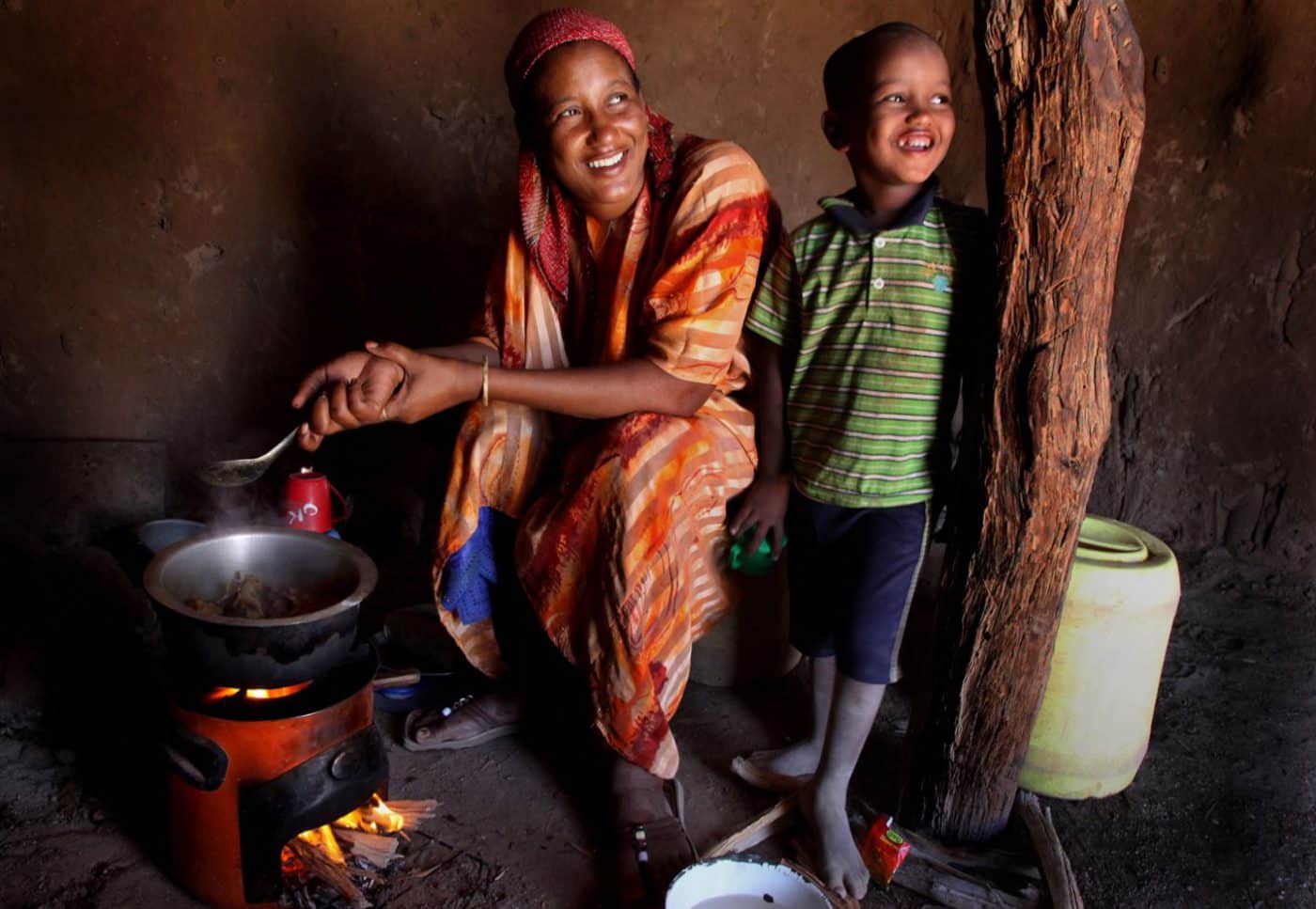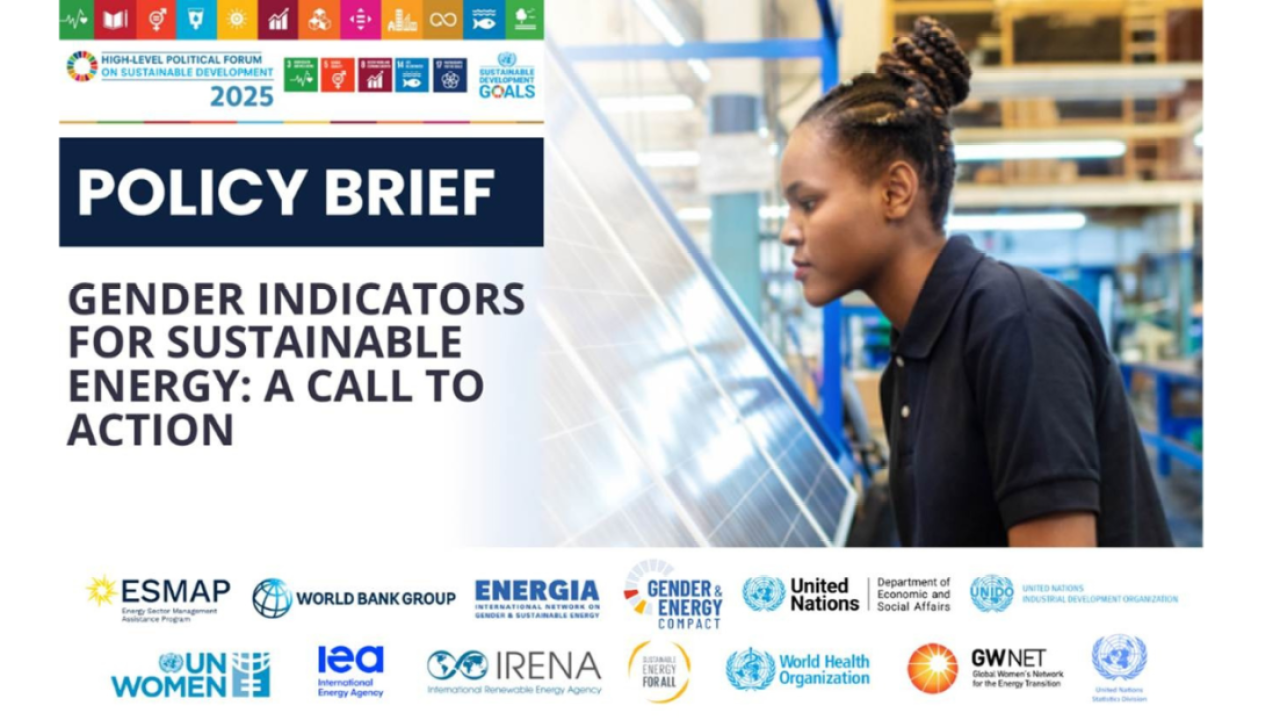New Gold Standard framework provides a credible way to measure contributions of climate projects to Sustainable Development Goal (SDG) 5 – gender equality
Geneva, Switzerland, 15 January 2018. Gold Standard has launched a new Gender Equality Framework within its standard ‘Gold Standard for the Global Goals’ to enable developers and funders of climate protection projects to quantify, certify and maximise contributions to empowering women and girls. The Framework, developed with support from the Grand Duchy of Luxembourg, helps accelerate and track progress toward the UN Sustainable Development Goal (SDG) 5 for Gender Equality. It features strengthened ‘Gender Sensitive’ Requirements that ensure projects anchor gender equality at the core of their design and ‘Gender Responsive’ Guidelines to assess the impact of projects proactively closing gender gaps.
“Poverty, education, health, jobs and livelihoods, food security, and environmental and energy sustainability will not be solved without addressing gender inequality,” states Allie Glinski from the International Center for Research on Women (ICRW). “This framework has been developed recognising the transformative nature of empowering women as well as the need for gender-specific data to track progress toward meeting SDG 5.”
By quantifying and certifying gender impacts, projects can tap into additional funding from an increasing pool of gender-lens investors and a rising demand to credibly report on what dollars have delivered through verified impact data.
The Framework’s ‘Gender Sensitive Requirements,’ are obligatory to every Gold Standard-certified project and ensure that projects follow the latest best practices in, for example, consulting with a representative cross-section of local women and men and adhering to gender-sensitive safeguards. The Framework’s Gender Responsive Guidelines takes this further, assessing impact to a wide range of SDG 5 indicators depending on what a project developer or funder seeks to deliver, for example:
- Increase in girls’ school enrolment and graduation rates
- Increase in income generation opportunities for women and equal pay
- Improved access to financial mechanismsfor women
- Incentives to recruit women, increase capacity and provide career development
- Reduction in women’s time poverty as time is saved in collecting and carrying water, fuel and forest products; enabling women to put it to better use
Gold Standard CEO, Marion Verles, highlights the untapped potential in quantifying and maximising impact toward gender equality: “Ensuring women’s participation and leadership in decision making can lead to improved social outcomes like family health (SDG 3) and education (SDG 4). Giving women voice and agency can also be transformative in environmental management – from climate change mitigation to ecosystem conservation.” She continues, “If we’re serious about the bold ambition of ‘gender equality for all’, we need to know how we’re doing in the race to 2030 and, critically, get the most out of every development dollar we spend.”
The first to apply the full Gender Equality Framework is a CO2Balance project in northern Uganda that rehabilitates boreholes to provide clean water access. These communities previously had to either drink unsafe water from nearby streams and risk suffering from life-threatening water borne illness, burn fuel to boil water, or travel long distances for clean water. Experts will monitor women’s time savings and how this translates to education or income-generating activities that lead to economic empowerment – a measurable impact toward SDG 5. They will also investigate how women’s representation on water resource committees can help improve their agency and empowerment in the community.
Other projects, including clean cooking solutions, renewable energy, forestry and agriculture will follow suit.
The Gold Standard Gender Equality Framework was created in collaboration with experts from the Global Alliance for Clean Cookstoves, the International Center for Research on Women, Hivos International, Fair Climate Network, World Bank Group, International Finance Corporation, UN REDD and EcoAct.
Organisations looking to help empower women and girls can support projects making a measurable difference in gender equality by funding Gold Standard Certified SDG 5 Impacts. Find out more here. Project developers who wish to apply the Gender Equality Framework may contact help@goldstandard.org to find out how to get started.
Media contact:
Sarah Leugers, Director of Communications for Gold Standard
sarah.leugers@goldstandard.org
+41 79 896 9652
NOTES TO EDITORS
About Gold Standard
Gold Standard is a standard and certification body that works to catalyse more ambitious action for climate security and sustainable development. It was established in 2003 by WWF and other international NGOs as a best practice standard to ensure projects that reduced carbon emissions under the UN’s Clean Development Mechanism (CDM) also delivered on the dual mandate to foster sustainable development. Now with more than 80 NGO supporters and 1400+ projects in over 80 countries, Gold Standard projects have created billions of dollars of shared value from climate and development action worldwide.
With the launch of new standard, Gold Standard for the Global Goals, Gold Standard now certifies a range of independently-verified SDG Impacts in addition to its flagship carbon credits.
Find out more: www.goldstandard.org
Twitter: @cdmgoldstandard
Facebook: GoldStandardFoundation







